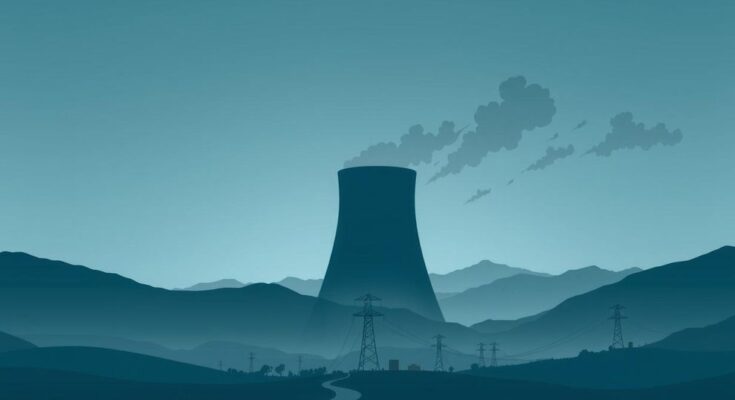Iran’s Foreign Ministry, represented by Esmaeil Baghaei, rebuked the IAEA and its Director General Rafael Grossi for allegedly incorrect claims regarding Iran’s nuclear program. Iran asserts that its nuclear activities remain within the bounds of international law, while Baghaei suggests political motivations behind the IAEA’s reports. Tensions surrounding the JCPOA continue, particularly after the U.S. withdrawal in 2018 and stalled negotiations since 2022.
On March 3, 2025, during a press conference in Tehran, Iranian Foreign Ministry Spokesman Esmaeil Baghaei criticized the International Atomic Energy Agency (IAEA) and its Director General, Rafael Grossi, for what he called “untrue” assertions regarding Iran’s nuclear program. Baghaei responded to recent IAEA reports that claimed Iran had significantly increased its production of highly enriched uranium since December, leading to a stockpile considered near-weapons-grade.
Baghaei emphasized that he expected Grossi to operate within his professional purview, stating that political speculation is not within the IAEA chief’s responsibilities, nor is it constructive in addressing apprehensions surrounding Iran’s nuclear agenda. He asserted that IAEA’s statements lacked factual foundation, asserting Iran’s compliance with international law and agreements.
Moreover, Baghaei suggested that external pressures from certain Western nations influenced IAEA’s findings, indicating that these reports were politically motivated rather than based on technical analyses. He referred to the IAEA’s report indicating that Iran’s uranium stock, enriched up to 60 percent purity, had reached 274.8 kg, theoretically sufficient for six nuclear weapons if further enriched.
Iran had previously committed to a nuclear agreement known as the Joint Comprehensive Plan of Action (JCPOA) in July 2015, which imposed restrictions on its nuclear activities in return for sanctions relief. However, following the United States’ withdrawal from the pact in May 2018 and the subsequent reimposition of sanctions, Iran had to scale back its nuclear commitments. Attempts to renew the JCPOA commenced in April 2021, but notable progress has not been observed since August 2022.
In summary, Iran’s Foreign Ministry has firmly opposed the IAEA’s recent claims about its nuclear program, labeling them as politically motivated and unfounded. Baghaei insists that Iran’s nuclear activities comply with international regulations and expresses concern over external influences affecting the IAEA’s assessments. The ongoing situation reflects a complex dynamic involving diplomatic negotiations, historical agreements, and international oversight.
Original Source: english.news.cn




